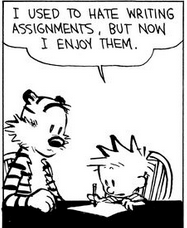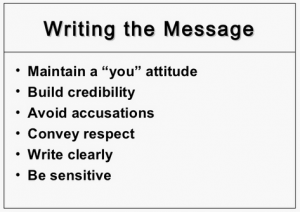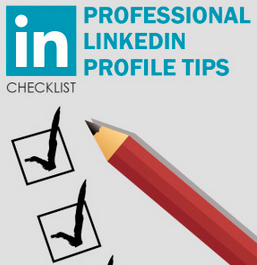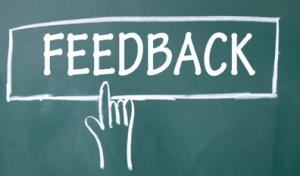Final Self-Assessment Reflection
ENGL301 has been instrumental in progressing my technical writing capabilities. It has been a great experience working with students from multidisciplinary fields and collaborating online in teams for peer reviews. The practice I’ve received in writing formal reports, business letters, memos, and more catered to different types of business correspondence have evolved my writing capabilities and developed my pre-employment skills significantly. Although at initial glance the three major assignments of the formal report, job application package, and web portfolio was incredibly daunting, the writing assignments have provided a strong foundational basis for me to approach them with confidence.
Throughout the term some of the weaknesses I’ve identified through the peer reviews and feedback I’ve received are grammatical errors and my tendency to use passive voice resulting in lengthy sentences. For example, Professor Paterson identified that my lengthy sentence in my progress report memo: “As there has been an increase in demand for Junior Achievement business programs from schools in Vancouver more so than the current supply of volunteers available to facilitate and teach at hand, the purpose of the report is to research effective ways to raise awareness of the volunteer opportunities at Junior Achievement to students at UBC.” could be more concisely expressed as “There is an increasing demand from Vancouver schools for Junior Achievement business programs; at present there are not enough volunteers to fill the demands for facilitating the program and teaching the courses. This report will investigate effective marketing and networking techniques and provide recommendations for increasing awareness of volunteer opportunities and improving recruitment for the Junior Achievement program at UBC”. I’ve defiantly learned to reflect, revise, and rewrite meticulously to avoid these mistakes and with practice I’ve noticed these errors are less prevalent. Some of the strengths I’ve identified are my reflection posts and peer reviews. I always tend to take extra time to mindfully reflect about my learning process and provide examples to back my statements. Likewise, after creating the peer review template assignment, I’ve taken that idea into stride and followed the same guideline to objectively and meticulously provide feedback in my peer reviews. I understand that peer reviews are also a large part of highlighting someone’s strengths and achievements so that they’re aware of what aspects of their writing is strong and what parts may need extra attention.
As a student, my skills and strengths have improved in terms of online presence and learning how to use the WordPress blog platform. Initially at the beginning of the term I had no LinkedIn profile and one of my goals was to learn how to use WordPress to create a food blog in the future. The Web-Folio has been a great assignment to tinker about with WordPress and provide a comprehensive online summary of my “Brand” to cater for my future career goals. In addition, after writing the top ten practices of LinkedIn, I truly realized the importance of having a LinkedIn profile in this digital age so I created one. The peer review Robele provided helped me identify areas I was missing and required expansion. Afterwards, I revised my LinkedIn profile so that it’s complete and individualized, supporting my future career because employers are now able to access my educational background and experiences with a click of their mouse. Another strength that supports my future career would probably be my work and volunteer experience. As a mature student pursuing a second degree, my diverse experiences have honed my communication and career search skills. My experience working in a high paced environment at IKEA as a returns and exchanges coworker have taught me to stay calm and objective in tense situations, much like how portraying the “you-attitude” in the complaint letter was important for reflecting professionalism and accomplishing a goal. In addition, volunteering as a business educator at Junior Achievement have taught me to tailor my language and expand definitions when teaching a younger audience, analogous to the definitions assignment at the beginning of the term.
Overall, ENGL301 has been an amazing experience with learning effective technical writing as well as learning how to use online platforms such as LinkedIn and WordPress. I’ll definitely utilize the “You-attitude” in future business correspondence letters or memorandums so that they’re not misinterpreted in any way. A big thank you to Professor Paterson for teaching and facilitating collaborative learning—the peer reviews were incredibly useful and it was engaging learning from other student’s perspectives. I strongly believe that the skills and knowledge I’ve developed from this course will be employed in my future career search and real life work settings.


 3 was challenging with learning new writing strategies and conducting our formal report drafts. We began with learning how to write with a “you-attitude”, whereby we emphasize writing through a reader’s point of view. This was an incredibly important topic because it applies to business and formal situations where we often have to be careful with the tone and implication each word carries through writing. The “You Attitude and Reader-Centered Writing” document provided was enlightening because it helped me identify areas in my writing I subconsciously don’t realize may sound condescending. For example, if I want to make suggestions to some through email, I often say “you should…” followed by an imperative. However, I realized that utilizing the pronoun in the body may irritate the reader and the imperative sounds commanding. Instead, I learned to refocus on the purpose of the document and provide information on whatever topic the reader is focusing on rather than provide instructions. I also learned to utilize the pronoun “you” only in the introduction and conclusion to sound friendly and build goodwill. The online document comparing a weak memorandum to a revised memorandum was helpful because it emphasized how just changing the pronoun can alter the meaning of an entire sentence. For example, there is a clear difference between the tone of the phrases “If there are any questions…” and “If you have any questions”. With the tips from the online document, I was able to more effectively revise Evan’s email message and provide complaint and bad news in the form of business letters.
3 was challenging with learning new writing strategies and conducting our formal report drafts. We began with learning how to write with a “you-attitude”, whereby we emphasize writing through a reader’s point of view. This was an incredibly important topic because it applies to business and formal situations where we often have to be careful with the tone and implication each word carries through writing. The “You Attitude and Reader-Centered Writing” document provided was enlightening because it helped me identify areas in my writing I subconsciously don’t realize may sound condescending. For example, if I want to make suggestions to some through email, I often say “you should…” followed by an imperative. However, I realized that utilizing the pronoun in the body may irritate the reader and the imperative sounds commanding. Instead, I learned to refocus on the purpose of the document and provide information on whatever topic the reader is focusing on rather than provide instructions. I also learned to utilize the pronoun “you” only in the introduction and conclusion to sound friendly and build goodwill. The online document comparing a weak memorandum to a revised memorandum was helpful because it emphasized how just changing the pronoun can alter the meaning of an entire sentence. For example, there is a clear difference between the tone of the phrases “If there are any questions…” and “If you have any questions”. With the tips from the online document, I was able to more effectively revise Evan’s email message and provide complaint and bad news in the form of business letters. enormity of users on LinkedIn and made me realize the significance of having an online formal profile. Robele’s peer review was incredibly helpful because it made me realize that my online profile was lacking certain important elements such as a profile photo, technical skills, and a short concise summary. Initially my summary resembled a cover letter but after researching ten best LinkedIn practices I realized that I had to break down my summary with a short introduction and include my strengths validated with problem, action, and result (PAR) statements. In addition, after reading through professor Paterson’s profile, I recognized how unique it was because she differentiated herself with visual elements like videos, documents, and pictures. In terms of creating a peer review template, it exposed myself to the importance of organization and visuals. Initially one aspect I found difficult with peer reviews is that I don’t know if I’ve addressed every single point in a clear and concise manner. However, the template peer review allowed our critique to be more organized and objective. As Professor Paterson emphasized, page design and document are as important as text. Prior to completing my template I perused through the group forum and immediately noticed some stylized and unique peer review templates. Two templates that immediately stood out to me were the ESL Boys logo and Paul Sullivan’s colorful visual peer review template. Therefore, I utilized a personalized logo for our team Professional Banters and used different fonts. The template also provided direction for my peer review that forced me to answer questions I often forget. For example, one aspect that I noticed in Robele’s LinkedIn profile was that his summary was too short. However, in my peer review template I addressed why it was too short, what elements were missing, and how he could improve on that element. Likewise, if a certain element of Robele’s profile was amazing, I addressed why it was impressive.
enormity of users on LinkedIn and made me realize the significance of having an online formal profile. Robele’s peer review was incredibly helpful because it made me realize that my online profile was lacking certain important elements such as a profile photo, technical skills, and a short concise summary. Initially my summary resembled a cover letter but after researching ten best LinkedIn practices I realized that I had to break down my summary with a short introduction and include my strengths validated with problem, action, and result (PAR) statements. In addition, after reading through professor Paterson’s profile, I recognized how unique it was because she differentiated herself with visual elements like videos, documents, and pictures. In terms of creating a peer review template, it exposed myself to the importance of organization and visuals. Initially one aspect I found difficult with peer reviews is that I don’t know if I’ve addressed every single point in a clear and concise manner. However, the template peer review allowed our critique to be more organized and objective. As Professor Paterson emphasized, page design and document are as important as text. Prior to completing my template I perused through the group forum and immediately noticed some stylized and unique peer review templates. Two templates that immediately stood out to me were the ESL Boys logo and Paul Sullivan’s colorful visual peer review template. Therefore, I utilized a personalized logo for our team Professional Banters and used different fonts. The template also provided direction for my peer review that forced me to answer questions I often forget. For example, one aspect that I noticed in Robele’s LinkedIn profile was that his summary was too short. However, in my peer review template I addressed why it was too short, what elements were missing, and how he could improve on that element. Likewise, if a certain element of Robele’s profile was amazing, I addressed why it was impressive.